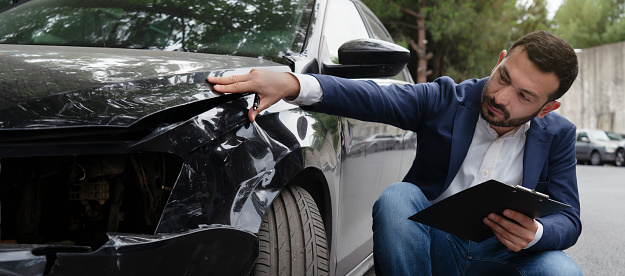Water damage can harm your Car’s interior as well as its mechanical and electrical components. You’ll only be insured if you have full insurance, This can be purchased as a separate policy. This is even if you have comprehensive coverage, which may only cover a limited number of water damage cases.
It’s crucial to know if you need water coverage in certain circumstances.Accidental water infiltration can cause extensive damage to your Car’s interior and mechanical and electrical systems.
Unless you have comprehensive coverage, which can be purchased as an add-on policy, it is not covered.You may only be covered for specific scenarios that lead to water damage, even if you have comprehensive car insurance coverage.There are scenarios when your risk increases, so figuring out if you need water insurance is critical.
Does Car Insurance Cover Water Damage?
Your insurance policy will determine whether or not your vehicle is covered for water damage. This is subject to change, and you may not receive the entire bundle.

These are the several forms of insurance coverage that are available:
Insurance coverage for third-party liabilities.A wide range of topics are covered in the Coverage event of a collision of Overdraft protection.Before you experience something like water damage, it’s a good idea to think about what types and levels of coverage you need.
Water damage can considerably reduce a vehicle’s value, necessitating costly repairs and even replacement in some situations.Even if it means completely halting your Car’s operations.
However, even though complete coverage costs extra, it’s worth it.If your car gets wet, it could end up saving you a lot of money in the long run.
Accessing Water Coverage:
Accidental flooding doesn’t affect comprehensive insurance policyholders. You’ll be required to submit an insurance claim. The following are the steps you need to do to access your benefits:

Analyze the losses:
Evaluate the damage to your vehicle when the floodwaters recede. This might help you determine whether or not you need to file a claim. Please take note of the vehicle area that has been most exposed to water, and then dry it. Take pictures of the damage, and don’t start the car until you’re sure everything is safe.
Declare a claim with your insurance provider:
You should contact your car insurance carrier as soon as possible to report the flood damage.If necessary, they’ll get a tow truck and have an appraiser come out to inspect the vehicle.
Wait for more instructions:
After filing a claim, the car insurance company will determine if and how much repairs will cost. If it’s worth more than your automobile, they’ll probably write it off. If your policy covers your water damage, you must pay your insurance deductible.
After that, you’ll have to pay your deductible before you can get any additional money. Consider whether or not the weather caused the water damage. If you live in an area where individuals are submitting claims, you’re not alone. You may have to wait a long time for your money to be returned.

When Does Water Damage Lead to a Total Loss?
The cost of repairs and the worth of your car is not the same if you have comprehensive coverage and the water damage exceeds the value of your vehicle. That means your insurance company may rule in your favor and deny your claim.
If your car is declared a total loss, your insurance provider will either replace it or pay you the same amount as the Car’s market worth. The engine will likely be swamped if the water level rises high enough, repairing practically tricky.
This is likely to be written off by the car insurance company. Following a flood, insurance companies are not uncommon to declare a vehicle a write-off. For comprehensive coverage, you may usually shop around for the best rates.
Water damage is covered by some types of car insurance, such as comprehensive coverage. Consider complete coverage if you live in a region susceptible to floods or if you have a loan on your vehicle.


Recent Comments